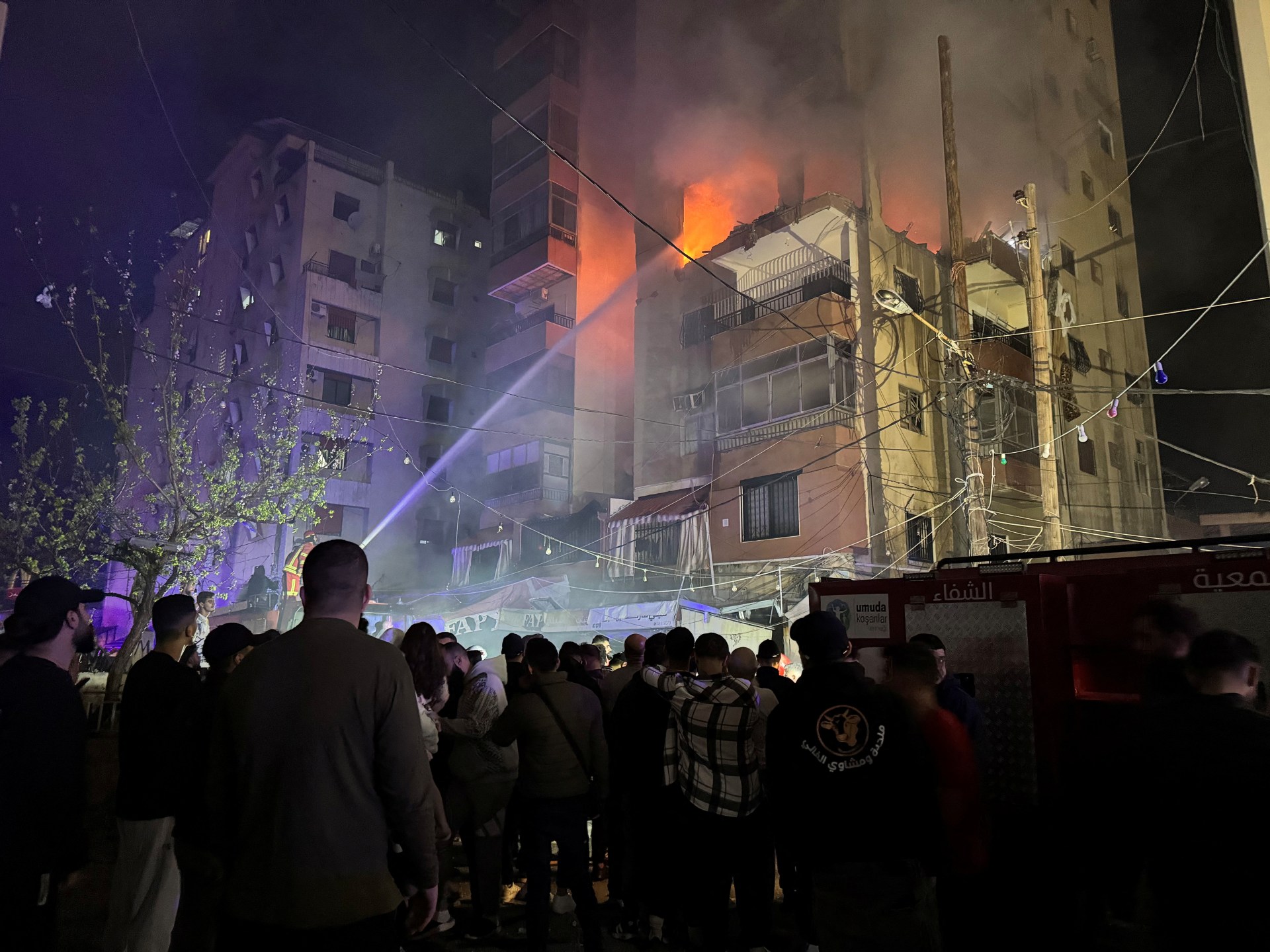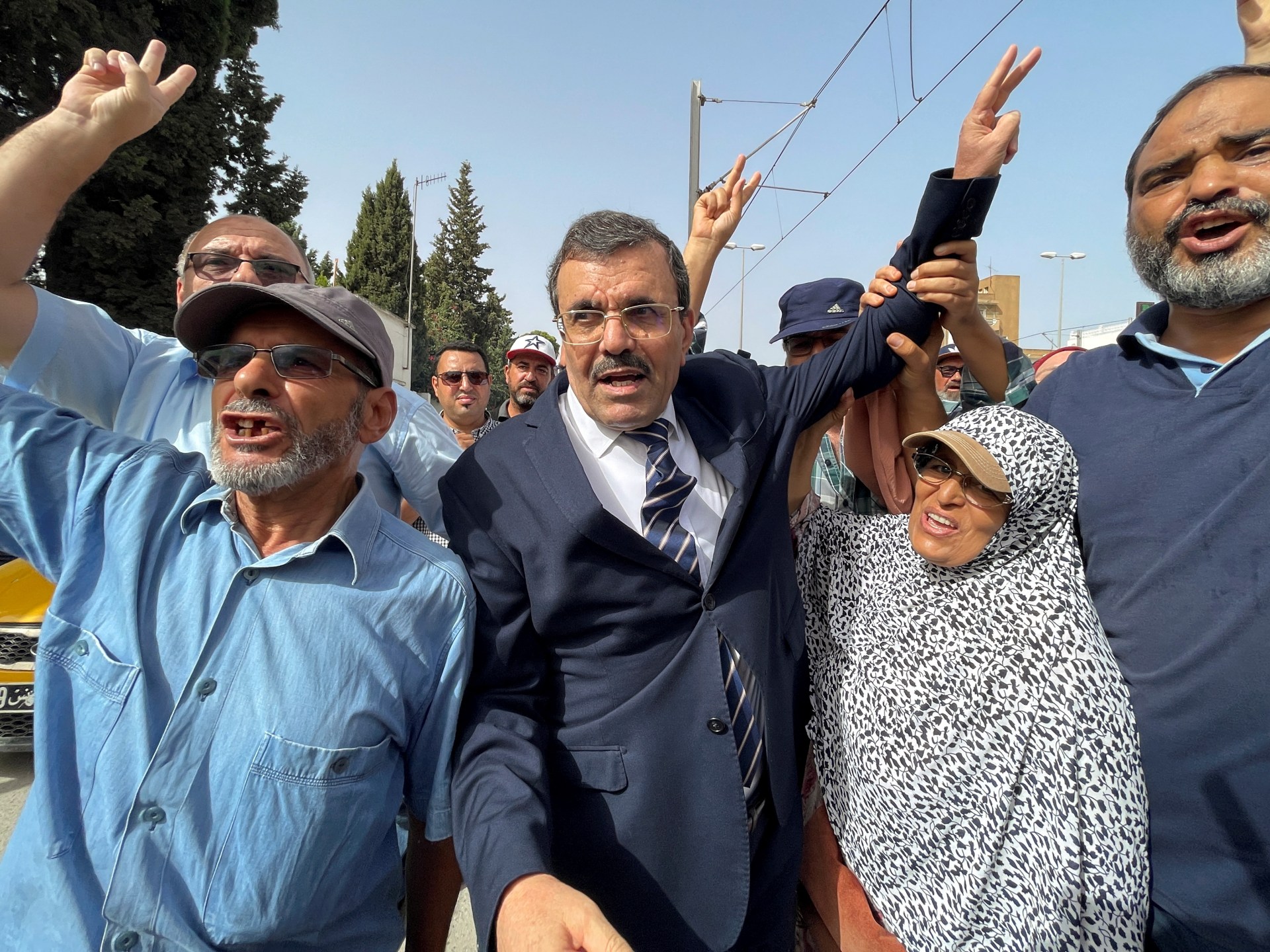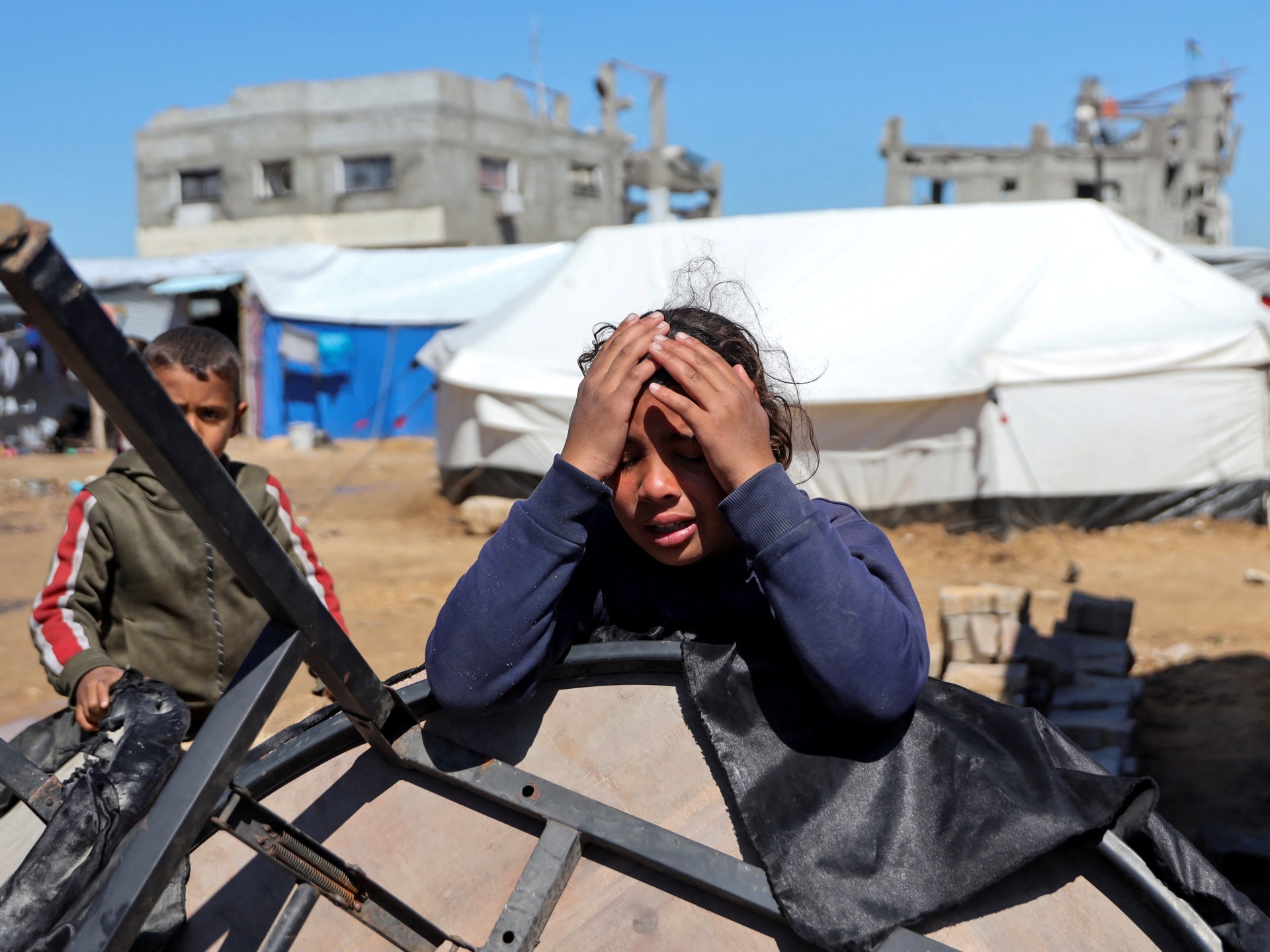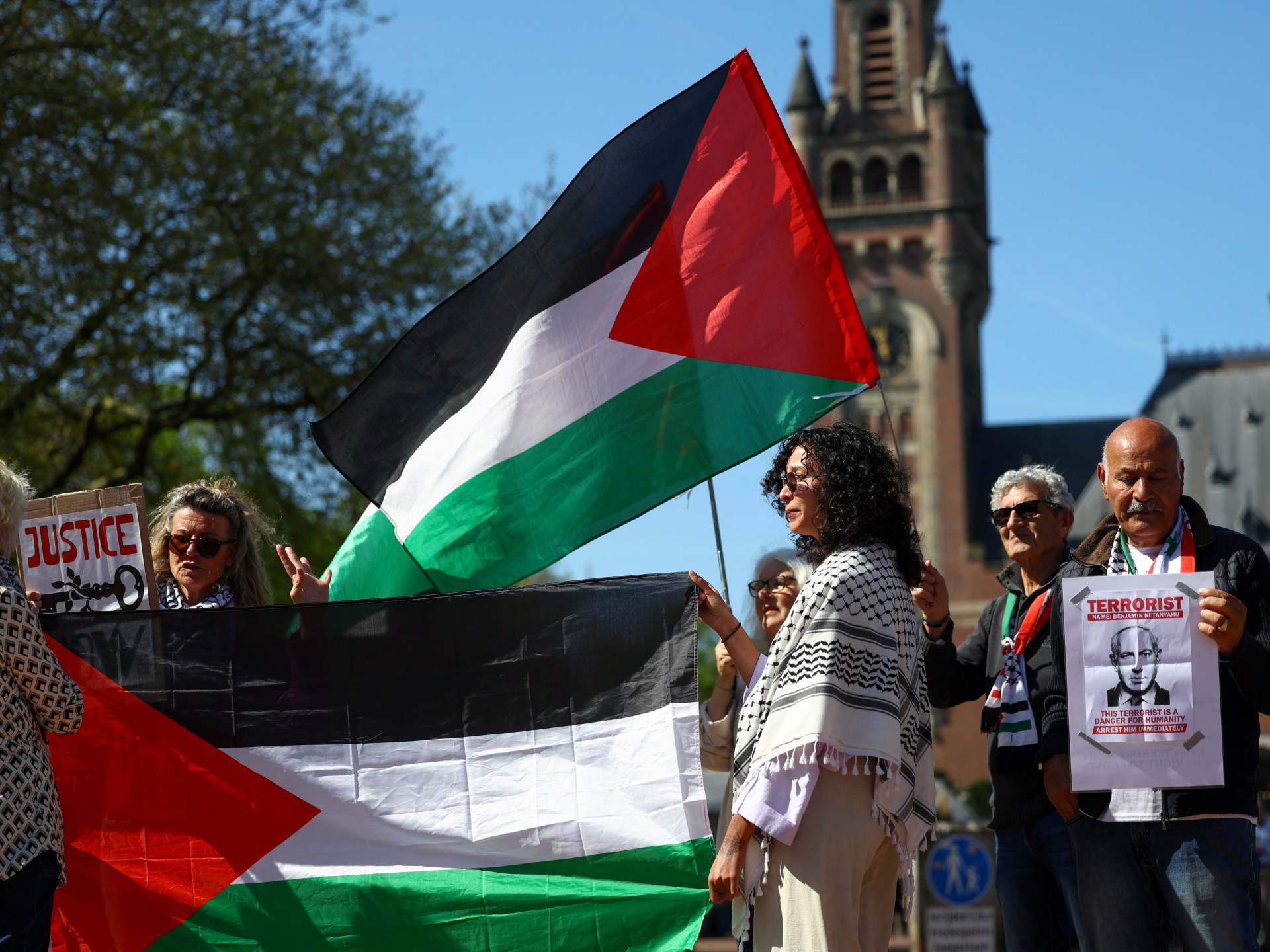Middle East
Lebanon warns Hamas against attacks threatening nation’s security | Israel attacks Lebanon News

President Joseph Aoun says Lebanon must not be used as a launchpad for instability or be dragged into unnecessary wars.
Lebanon’s top security body has warned the Palestinian group Hamas against using the country’s territory for acts that could undermine national security, after rocket fire towards Israel led to counterstrikes.
The Higher Defence Council issued the warning on Friday as Lebanon faces growing United States pressure to disarm groups outside state control, following a 14-month war between Israel and the armed Lebanese group Hezbollah, an ally of Hamas.
Lebanese authorities are also trying to establish their authority throughout the country, particularly in the south near the border with Israel.
Israel has violated the US-brokered November 2024 truce agreement on a near-daily basis, according to Lebanese authorities, including three air attacks on the capital Beirut.
In a statement, the council headed by President Joseph Aoun said Lebanon must not be used as a launchpad for instability or be dragged into unnecessary wars.
It added that “the utmost measures and necessary procedures will be taken to put a definitive end to any act that violates Lebanese sovereignty.”
Aoun, who previously served as army commander, has pledged to bring all weapons in the country under the state’s authority, but has admitted that disarming Hezbollah, which the US has been pressuring Lebanon to do, is a “delicate” matter.
Mohammad al-Mustafa, secretary-general of the council, told reporters on Friday that while Aoun highlighted the importance of Palestinian rights, he also stressed that Lebanese stability should not be compromised.
Hamas has a longstanding presence within Lebanon, including in camps across the country that host hundreds of thousands of longtime Palestinian refugees, and where Lebanese security forces have long had only limited authority.
Along with Hezbollah, Hamas fighters in Lebanon fired rockets across the southern border into Israel in solidarity with Palestinians after Hamas’s October 7, 2023 attack, when Israel began a huge bombardment campaign in Gaza.
Since then, Israeli air attacks have killed several Hamas commanders in Lebanon, including the group’s deputy chief in early 2024.
Israel has cited security concerns for its continued deadly raids on Lebanon, despite the ceasefire.
In a bid to address the concerns of Israel and the US, which brokered the ceasefire, the Lebanese army arrested Lebanese and Palestinian individuals accused of firing rockets towards Israel on March 22 and March 28.
No group claimed responsibility for the attacks, and Hezbollah has denied any involvement.
But a Lebanese security source told the AFP news agency that security forces arrested three Hamas members.
The council said legal proceedings would begin early next week against those detained over the rocket fire in March.
Middle East
Former Tunisian PM handed 34-year sentence, rejects ‘terrorism’ charges | Politics News

Former Prime Minister Ali Larayedh and the opposition Ennahdha party have denounced the trial as politically motivated.
A Tunisian court has sentenced former Prime Minister Ali Larayedh to 34 years in prison over accusations he facilitated the departure of fighters to Syria – a charge the opposition figure strongly denies.
“I was neither sympathetic, nor complicit, nor neutral, nor lenient towards violence, terrorism,” Larayedh told the judge on Friday, rejecting what he and his Ennahdha party have called a politically motivated prosecution.
The ruling is the latest blow to the Ennahdha party, a major opposition force to President Kais Saied.
Larayedh, who served as prime minister from 2013 to 2014, has been in detention since 2022.
His sentencing comes just a week after the arrest of vocal Saied critic Ahmed Souab and new prison terms handed down to political opponents, media figures and businesspeople on various conspiracy charges.
According to state news agency TAP, the sentences apply to eight individuals, with prison terms ranging from 18 to 36 years. The court did not name those convicted alongside Larayedh.
Ennahdha denies all terrorism-related allegations, arguing that the case is part of a broader campaign against dissent that has intensified since Saied suspended parliament and assumed sweeping powers in 2021. The government maintains that Tunisia’s judiciary is independent, rejecting claims of political interference.
Human rights groups, however, say the crackdown on opposition voices – including the jailing of Souab – marks a dangerous escalation. Many warn that democratic gains in the birthplace of the Arab Spring in the years since the 2011 revolution are being steadily rolled back.
Growing protests against Tunisian president
Saied faced protests on Thursday as opponents took to the streets of Tunis, accusing him of using the judiciary and police to silence dissent.
The demonstration, the second in a week, comes amid growing alarm over what critics see as an authoritarian drift in the country that sparked the Arab Spring.
Marching down Habib Bourguiba Avenue, anti-Saied protesters chanted slogans including “Saied go away, you are a dictator” and “The people want the fall of the regime” – echoing the calls that fuelled the 2011 uprising that ousted former President Zine El Abidine Ben Ali.
Supporters of Saied held a counter-rally on the same boulevard, shouting, “No to foreign interference” and “The people want Saied again”.
The opposition accuses Saied of undermining the democracy won in the 2011 revolution, since he seized extra powers in 2021 when he shut down the elected parliament and moved to rule by decree before assuming authority over the judiciary.
Middle East
Palestinian children face starvation under Israel’s total Gaza blockade | Israel-Palestine conflict News

UNICEF says children face ‘growing risk of starvation, illness and death’ as Israel bars food and other aid deliveries.
Thousands of Palestinian children in the Gaza Strip are facing an increased threat of starvation, the United Nations has warned, as Israel’s continued blockade of food, water and other critical supplies to the besieged and bombarded coastal territory enters its third month.
The UN’s child rights agency (UNICEF) said on Friday that more than 9,000 children had been admitted for treatment for acute malnutrition since the start of the year.
But the situation has worsened since Israel imposed a total blockade on the Palestinian enclave in early March.
“For two months, children in the Gaza Strip have faced relentless bombardments while being deprived of essential goods, services and lifesaving care,” UNICEF Executive Director Catherine Russell said in a statement.
“With each passing day of the aid blockade, they face the growing risk of starvation, illness and death – nothing can justify this.”
Israel has blocked all humanitarian assistance from reaching Palestinians in Gaza since March 2, spurring international condemnation.
The UN’s World Food Programme said last week that its food supplies had been “depleted” amid the siege, warning that community kitchens upon which thousands of Palestinians rely would be forced to close.
“We don’t ask if food is nutritious or not, if it’s fresh or good; that’s a luxury, we just want to fill the stomachs of our children,” a displaced Palestinian parent recently told Amnesty International about the crisis. “I don’t want my child to die hungry.”
The Israeli government has said its blockade is intended to put pressure on Palestinian group Hamas to release captives held in Gaza. But it has not led to any more releases since the fleeting ceasefire earlier this year, which saw Palestinian prisoners exchanged for Israeli captives.
Meanwhile, Hamas official Abdel Rahman Shadid on Friday accused Israel of using starvation as a “deliberate weapon of war” against Palestinians.
“Children are dying from the lack of milk, not just from bombs,” Shadid said in a statement published on the group’s Telegram channel.
Legal experts and human rights groups have noted that, as an occupying power, Israel has an obligation under international law to provide food and other assistance to Palestinians in the Gaza Strip.
They have condemned the blockade as a violation of the Fourth Geneva Convention.
Hundreds of thousands of Palestinians of all ages are experiencing high levels of food insecurity in Gaza, according to the Integrated Food Security Phase Classification (IPC) system, a global hunger watchdog.
Amjad Shawa, director of the Palestinian NGOs Network, told Al Jazeera that the situation is worsening quickly as health facilities lack the supplies needed to treat children grappling with malnutrition.
“We have no food supplies or supplementary materials or medications for these children,” Shawa told Al Jazeera from Gaza City. “There is high concern that we will witness more casualties in the coming few days,” he added.
At Kamal Adwan Hospital in Beit Lahiya, in northern Gaza, Dr Ahmed Abu Nasir said the situation has become worse than ever due to the blockade.
“Children are in their growing stage and badly need certain nutrients, including proteins and fats,” the paediatrician told Al Jazeera. “These are not available in the Gaza Strip, particularly in the north.”
More than 52,400 Palestinians have been killed since Israel’s war on Gaza began in October 2023, according to figures from the Gaza Health Ministry.
Middle East
ICJ hearing on Israel’s obligation to allow aid to Palestine: Key takeaways | Israel-Palestine conflict News

On May 2, the International Court of Justice (ICJ) concluded public hearings into what Israel’s obligations are regarding allowing United Nations agencies and other relief groups to work in the Palestinian territory it occupies.
A panel of judges has heard oral arguments from 40 countries since Monday, including China, France, Indonesia, Pakistan, Russia and the United Kingdom.
The court will likely deliberate for months before making a ruling, requested of it in December by the UN General Assembly.
Many of the participating states rebuked Israel for acutely restricting humanitarian aid into Gaza since launching a genocidal war on the enclave on October 7, 2023.
Israel has cut off all aid – food or medicine – entirely for the last two months, accelerating the starvation and medical crises.
Here are the key takeaways from the hearings:
Starvation threatens the Palestinians as a people
There was broad consensus that Israel, as an occupying power, would be obliged to allow aid organisations to deliver assistance to the people it occupies, particularly in Gaza, which Israel is also bombing.
Israel has weakened human rights norms through its violations in Gaza, Juliette McIntyre, a legal scholar at the University of South Australia, argued.
She pointed out that nearly all the states speaking at the hearings affirmed that the ability of Palestinians to receive humanitarian relief is necessary for their survival, to guard their right to eventual self-determination and safeguard the entire UN system and the treaties underpinning it.
Put bluntly, she said most states agree that Israel should not be allowed to starve civilians it occupies nor impede the relief work of UN agencies.
“Every state, except for two, agrees that Israel is an occupier and it owes certain obligations,” she told Al Jazeera.

What did Israel say?
Israel submitted written statements which called the hearings a “circus” and accused the court of anti-Semitism.
On top of that, it claimed that it has no obligation to work with what it described as compromised UN organs or aid groups and that its sovereign right to “defend itself” takes priority over its responsibility to deliver aid to the people it occupies.
This is not the first time Israel has refused to attend ICJ sessions leading to an advisory opinion.
The US statement
The US defended Israel, said Heidi Matthews, assistant professor of law at York University, Canada.
She added that the US tried to deny the severity of the situation and shield Israel from accountability by deliberately not speaking about the facts on the ground.
According to Matthews, while the US mainly said the ICJ should advise Israel to uphold its legal obligations under international law, it did not provide details of Israel’s conduct or call for Israel to take concrete steps to mitigate the humanitarian crisis it created.
“This kind of highly formalist and factually empty approach to law is characteristic of one form of fascist engagement with legal argument,” Matthews told Al Jazeera.
The US also tried to “spook” the court by bringing up Israel’s unsupported allegations that the UN relief agency for Palestinians (UNRWA) had been infiltrated by Hamas, said Adel Haque, a legal scholar at Rutgers University.
In October 2024, Israel banned UNRWA, which aids the Palestinians made refugees by the Zionist ethnic cleansing that made way for the declaration of Israel as a state in 1948.
The US is betting that the court can be swayed, Haque said, and so it is trying to encourage a more “general” advisory opinion.
“Basically, if the advisory opinion is made at such a high level of generality, then it wouldn’t say anything about Israel’s conduct at all,” he told Al Jazeera.
More than two million Palestinians in Gaza are starving as they face genocidal levels of violence at Israel’s hands.
ICJ cases as a substitute for action?
While ICJ advisory opinions reaffirm international laws and norms, its non-binding opinions cannot change facts on the ground, and some countries may be seeking ICJ opinions rather than take concrete, coordinated action against Israel, said Haque.
“Many [European states] have come before the ICJ in these hearings to say Israel is not fulfilling its obligations. But the question, now, is what are these states going to do about it?” he told Al Jazeera.

He noted the UK had used the recent hearings to denounce Israel’s obstruction of aid and to speak about its decision to halt arms sales to Israel, not enough of an action, he added.
France also spoke about the need for Israel to quickly facilitate aid into Gaza.
But the statements appear to be attempts to substitute for Europe’s collective failure to take urgent action against Israel for its conduct in Gaza, said Haque.
“The onus is on states to decide what they are going to do about [Israel’s actions] and not to wait for the court to rule on what they already know,” Haque added.
When and how will the ICJ rule?
The ICJ is not expected to issue an advisory opinion for months.
The non-binding advisory opinion will likely not compel Israel or member states to change course, according to legal scholars.
Israel has ignored an earlier binding provisional measures by the ICJ ordering it to scale up humanitarian aid and end acts of genocide in Gaza as a result of a genocide case brought against Israel by South Africa in December 2023.
No state has taken any action against Israel for failing to implement the provisional measures.
McIntyre believes the court will eventually issue a narrow ruling that outlines Israel’s responsibilities to facilitate aid and cooperate with UNRWA.
By the time the court issues its opinion, tens of thousands of Palestinians may have already starved to death, or been ethnically cleansed by Israel.
“The advisory opinion won’t solve the problem on the ground and genuine action [by states] needs to be taken,” warned McIntyre.
-

 Asia2 days ago
Asia2 days agoWhitley Award 2025: Borneo’s elephants are facing extinction, but this conservationist has a plan to save them
-

 Sports2 days ago
Sports2 days agoLondon Marathon: Why more people than ever before are running marathons
-

 Lifestyle2 days ago
Lifestyle2 days agoDiego Boneta on debut novel ‘The Undoing of Alejandro Velasco’
-

 Europe2 days ago
Europe2 days agoIdaho student killings: The latest pre-trial developments in the case of quadruple murder suspect Bryan Kohberger
-

 Middle East2 days ago
Middle East2 days agoWhat is behind the violence in Syria? | Syria’s War News
-

 Europe2 days ago
Europe2 days agoHere’s what’s in Trump’s Ukraine minerals deal and how it affects the war
-

 Sports2 days ago
Sports2 days agoMaya Merhige: American teenager withstood thousands of jellyfish stings during a 14-hour swim across the Cook Strait
-

 Middle East2 days ago
Middle East2 days agoFourth round of US-Iran nuclear talks postponed amid continued tensions | Nuclear Energy News




